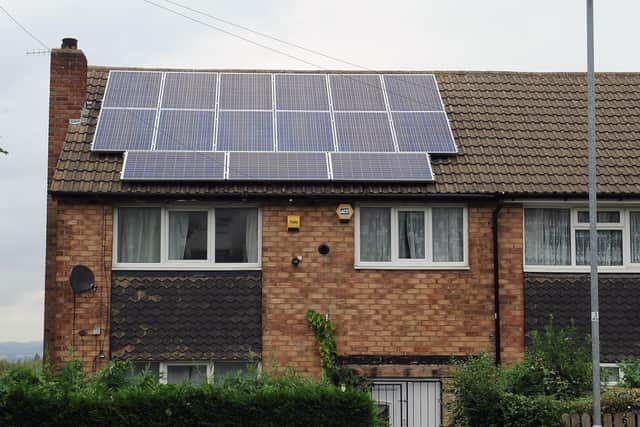Working from home’s impact on fuel bills and what can be done – Steve Day


However, it’s not all bad news. A year of video calls instead of daily commutes, trips to UK beaches and national parks instead of long-haul flights and shopping locally instead of driving into town has seen a dramatic decrease in carbon emissions across the country.
This trend of lower emissions is something we hope to see a lot more of with the Government’s recent carbon commitments.
Advertisement
Hide AdAdvertisement
Hide AdSo what can we make of the current situation and how are things going to change as we head into the new year?


With a move to working from home that many businesses have committed to continue post-pandemic, home energy supplies are going to become even more important in 2021.
The energy costs of working from home have put a strain on household budgets and it will be vital that energy customers are treated with greater levels of respect and are offered more transparency than has been present in the energy industry in the past.
We’re seeing more and more smart home products come on to the market that give people more control over how they use energy to power and heat their home.
Advertisement
Hide AdAdvertisement
Hide AdWe’re certain to see more of this over the coming years but I suspect we’ll start to see more technology companies offering solutions that take the whole house into consideration.
We’ll start to see more companies offering solutions that seamlessly and autonomously optimise and coordinate multiple parts of your house – your heating, hot water tank, your solar battery and your electric vehicle charger – for your comfort and convenience, while also minimising your bills.
This democratisation of energy is something we’re passionate about at Social Energy.
Giving people the means to control their own energy supply through solar panels and connected solar batteries is at the heart of what we do, while giving them the capability to send their spare energy to the grid for the best price and trade energy in a way that hasn’t previously been possible for standard domestic energy users.
Advertisement
Hide AdAdvertisement
Hide AdThe rise of electric vehicles will show no sign of stopping as we head ever closer to the 2030 ban on the sale of new petrol and diesel vehicles. We’re seeing more car manufacturers releasing electric models and we’re seeing increasing numbers of charging points.
The price of energy a typical customer pays on their bill is normally a fixed single rate but behind the scenes the wholesale cost of energy is constantly changing. In 2021, it’s fair to assume this volatility will increase, with more opportune points of negative prices. This is when the price of energy drops below zero and more forward-thinking and technologically savvy energy companies can reward their customers for using energy at certain times.
We saw some energy companies paying their customers to use energy at certain times of day this year and I suspect we shall see more companies start offering this.
The move to renewables is likely to get a boost in 2021 and over the coming years. Recent commitments from the Government on emission-free electricity by 2050 and a significantly decarbonised energy system by 2030 will put a renewed focus on wind, solar and tidal power.
Advertisement
Hide AdAdvertisement
Hide AdAs the National Grid becomes more reliant on renewable energy that is traditionally less predictable and controllable than burning coal or gas, there will be a growing need to manage demand for energy – and not just its supply. In turn, this highlights the importance of smart, in-home technologies like battery storage and the flexibility services – those that help to balance and maintain the electricity grid – these can provide.
The energy industry in the UK has been known in the past for its poor customer service and the control the “Big Six” has on the market.
But the tides are changing, with challengers starting to make real moves. The dawn of energy companies that are completely upfront with their customers on costs and respond in a timely manner when contacted is a welcome change indeed.
As we head into a new year, one thing is sure. Most of us will be spending more time at home, which means we’re likely to be using more energy and therefore spending more money. If you haven’t looked at how much you’re paying for your energy, or where your energy comes from, then it’s worth doing so.
Steve Day is Chief Technology Officer of Social Energy.
Advertisement
Hide AdAdvertisement
Hide AdSupport The Yorkshire Post and become a subscriber today. Your subscription will help us to continue to bring quality news to the people of Yorkshire. In return, you’ll see fewer ads on site, get free access to our app and receive exclusive members-only offers. Click here to subscribe.
Comment Guidelines
National World encourages reader discussion on our stories. User feedback, insights and back-and-forth exchanges add a rich layer of context to reporting. Please review our Community Guidelines before commenting.